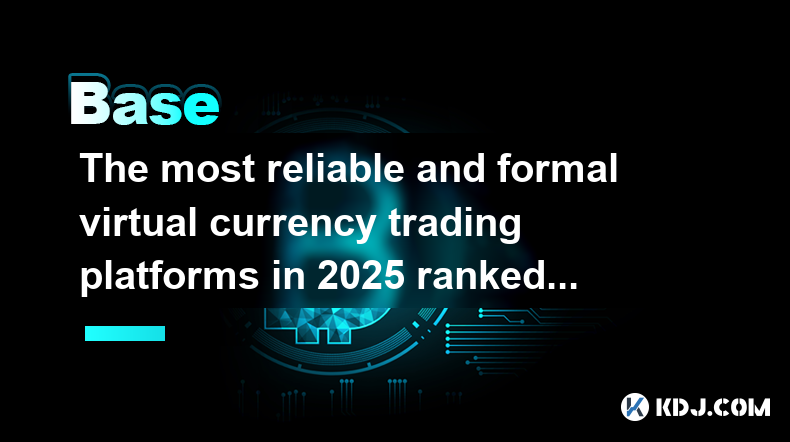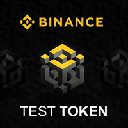-
 Bitcoin
Bitcoin $92,406.0232
-1.34% -
 Ethereum
Ethereum $1,768.4583
-1.36% -
 Tether USDt
Tether USDt $1.0000
-0.03% -
 XRP
XRP $2.1730
-2.52% -
 BNB
BNB $604.2475
-2.32% -
 Solana
Solana $148.1687
-2.25% -
 USDC
USDC $1.0000
0.01% -
 Dogecoin
Dogecoin $0.1734
-4.80% -
 Cardano
Cardano $0.6839
-1.46% -
 TRON
TRON $0.2437
-1.57% -
 Sui
Sui $3.0133
3.25% -
 Chainlink
Chainlink $14.4714
-0.68% -
 Avalanche
Avalanche $21.9915
-2.91% -
 UNUS SED LEO
UNUS SED LEO $9.2208
1.67% -
 Stellar
Stellar $0.2629
-1.62% -
 Toncoin
Toncoin $3.1121
-0.16% -
 Shiba Inu
Shiba Inu $0.0...01320
-3.97% -
 Hedera
Hedera $0.1787
-2.88% -
 Bitcoin Cash
Bitcoin Cash $357.7790
-1.03% -
 Polkadot
Polkadot $3.9943
-1.88% -
 Litecoin
Litecoin $82.4204
-2.04% -
 Hyperliquid
Hyperliquid $18.2204
-4.10% -
 Dai
Dai $1.0000
0.01% -
 Bitget Token
Bitget Token $4.4973
-3.79% -
 Ethena USDe
Ethena USDe $0.9994
-0.01% -
 Pi
Pi $0.6498
-0.73% -
 Monero
Monero $225.7950
-0.96% -
 Uniswap
Uniswap $5.8127
-2.40% -
 Pepe
Pepe $0.0...08574
-6.17% -
 Aptos
Aptos $5.2914
-0.19%
The role of digital signatures in crypto transactions
Digital signatures are vital for crypto transactions, ensuring security, authenticity, and non-repudiation through asymmetric cryptography and blockchain verification.
Apr 22, 2025 at 04:01 pm

Digital signatures play a crucial role in the world of cryptocurrency transactions, ensuring security, authenticity, and non-repudiation. In the realm of crypto, where transactions are decentralized and often anonymous, the importance of digital signatures cannot be overstated. They are the backbone of trust in a system that operates without traditional financial intermediaries. This article delves into the multifaceted role of digital signatures in crypto transactions, exploring how they work, their significance, and the various ways they enhance the security and integrity of the cryptocurrency ecosystem.
Understanding Digital Signatures
A digital signature is a cryptographic mechanism used to verify the authenticity and integrity of a message, software, or digital document. In the context of cryptocurrencies, digital signatures are used to confirm that a transaction originates from the rightful owner of the funds and has not been tampered with during transmission. They are generated using asymmetric cryptography, where a pair of keys—a public key and a private key—is employed. The private key, known only to the owner, is used to create the signature, while the public key, which is openly available, is used by others to verify the signature.
The Process of Creating a Digital Signature
Creating a digital signature for a crypto transaction involves several steps:
Hashing the Transaction Data: The first step is to create a hash of the transaction data. A hash function takes the transaction data and produces a fixed-size string of bytes, known as a hash value. This hash value is unique to the transaction data and serves as a digital fingerprint.
Signing the Hash with the Private Key: The hash value is then encrypted using the sender's private key. This encrypted hash is what becomes the digital signature. Because the private key is unique to the sender, the signature is also unique to the transaction and the sender.
Attaching the Signature to the Transaction: The digital signature is attached to the transaction data and broadcast to the network. This allows anyone who receives the transaction to verify its authenticity.
Verifying a Digital Signature
When a node on the network receives a transaction, it must verify the digital signature to ensure the transaction's legitimacy. The verification process includes:
Hashing the Received Transaction Data: The node hashes the transaction data it received, just as the sender did before signing.
Using the Public Key to Decrypt the Signature: The node then uses the sender's public key to decrypt the digital signature attached to the transaction. This decryption should yield the same hash value that was calculated from the transaction data.
Comparing the Hash Values: If the hash value obtained from decrypting the signature matches the hash value calculated from the transaction data, the signature is verified as valid. This confirms that the transaction has not been altered and that it indeed came from the owner of the public key.
The Role of Digital Signatures in Ensuring Security
Digital signatures are essential for maintaining the security of crypto transactions. They provide several layers of protection:
Authentication: By verifying that a transaction comes from the rightful owner of the funds, digital signatures prevent unauthorized transactions. Only the person with access to the private key can create a valid signature.
Integrity: Digital signatures ensure that the transaction data has not been altered during transmission. Any change to the transaction data would result in a different hash value, causing the signature verification to fail.
Non-repudiation: Once a transaction is signed and broadcast, the sender cannot deny having sent it. The digital signature serves as undeniable proof of the transaction's origin.
Digital Signatures and Blockchain Technology
In the context of blockchain technology, digital signatures are integral to the consensus mechanisms that validate and record transactions. Each block in a blockchain contains multiple transactions, each of which is signed by the sender. Nodes on the network use these signatures to verify the transactions before adding them to the blockchain. This process ensures that only valid transactions are recorded, maintaining the integrity of the entire blockchain.
The Use of Digital Signatures in Different Cryptocurrencies
While the basic concept of digital signatures remains the same across different cryptocurrencies, their implementation can vary. For example:
Bitcoin: In Bitcoin, digital signatures are used in the script system to unlock funds. When a user wants to spend their bitcoins, they must provide a valid signature that corresponds to the public key associated with the address holding the funds.
Ethereum: Ethereum uses digital signatures in a similar way, but also incorporates them into smart contracts. Smart contracts can require signatures from multiple parties to execute certain functions, adding an additional layer of security and control.
Other Cryptocurrencies: Many other cryptocurrencies, such as Litecoin and Ripple, also rely on digital signatures to secure their transactions. The specific algorithms and protocols may differ, but the fundamental principle of using digital signatures to ensure authenticity and integrity remains consistent.
Challenges and Considerations
While digital signatures are a powerful tool for securing crypto transactions, they are not without challenges. Key management is a critical aspect, as the security of the entire system depends on the private key remaining secret. If a private key is compromised, an attacker can create valid signatures and steal funds. Additionally, the computational resources required to generate and verify signatures can be significant, especially for large-scale networks.
Frequently Asked Questions
Q: Can digital signatures be forged?
A: Digital signatures are designed to be extremely difficult to forge. The security of a digital signature depends on the strength of the cryptographic algorithms used and the secrecy of the private key. However, if the private key is compromised, an attacker can create valid signatures. Therefore, secure key management is crucial.
Q: How do digital signatures differ from traditional signatures?
A: Traditional signatures are handwritten and can be easily forged or altered. Digital signatures, on the other hand, are created using cryptographic algorithms and are mathematically verifiable. They provide a higher level of security and are used to ensure the authenticity and integrity of digital data.
Q: Are digital signatures used only in cryptocurrencies?
A: No, digital signatures are used in various applications beyond cryptocurrencies. They are employed in secure email communication, software distribution, and electronic document signing, among other uses. However, their role in cryptocurrencies is particularly significant due to the decentralized and anonymous nature of these transactions.
Q: What happens if a digital signature fails to verify?
A: If a digital signature fails to verify, it means that either the transaction data has been altered or the signature was not created with the correct private key. In such cases, the transaction is considered invalid and will not be processed by the network. This ensures that only legitimate transactions are recorded on the blockchain.
Disclaimer:info@kdj.com
The information provided is not trading advice. kdj.com does not assume any responsibility for any investments made based on the information provided in this article. Cryptocurrencies are highly volatile and it is highly recommended that you invest with caution after thorough research!
If you believe that the content used on this website infringes your copyright, please contact us immediately (info@kdj.com) and we will delete it promptly.
- Sleep Token (RCA)
- 2025-04-24 14:15:11
- Robotix Networks (Riot) Expands Credit Facility to $100M with Collaboration from Coinbase's Credit Arm
- 2025-04-24 14:15:11
- Trollface (TROLL) Memecoin Turns $173 Investment into $224K Amid Viral Surge
- 2025-04-24 14:10:11
- Bitcoin Breaks Out Above the Cloud, Liquidates $500M in Shorts
- 2025-04-24 14:10:11
- Top Strategist Signals a Paradigm Shift as Bitcoin Rockets Past $94K
- 2025-04-24 14:05:12
- Shiba Inu (SHIB) Demonstrates Resilience, Maintaining Its Position at $0.000013 Despite Market Fluctuations
- 2025-04-24 14:05:12
Related knowledge

Top 10 virtual currency trading platform app in 2025 List of the world's largest virtual currency exchanges
Apr 24,2025 at 08:07am
Ranking of the world's largest virtual currency exchanges 1. Binance As one of the world's leading virtual currency trading platforms, Binance continues to maintain its top position in 2025. With its huge trading volume and extensive user base, Binance has attracted the favor of many investors. The platform provides a diverse trading pair and an...

Which virtual currency trading platform is better in 2025? A safe and easy-to-use cryptocurrency platform inventory
Apr 23,2025 at 02:28pm
Recommended trustworthy cryptocurrency trading platforms in 2025 1. Binance As the world's leading cryptocurrency trading platform, Binance is popular for its fast transaction processing capabilities and diverse trading pairs. Binance not only supports mainstream cryptocurrency trading, but also provides advanced trading products such as futures and...

The top ten formal and reliable digital currency trading platforms in 2025
Apr 24,2025 at 04:49am
The top ten trustworthy digital currency trading platforms in 2025 1. Binance Binance is one of the world's leading digital currency trading platforms, attracting many users due to its huge transaction volume and diverse trading pairs. The following are its main features: High liquidity : Binance has huge transaction volumes, ensuring users can quic...

What are the currency exchange apps? The top ten best virtual currency trading platforms in 2025
Apr 23,2025 at 09:56pm
Top 10 Most Popular Virtual Currency Trading Platforms in 2025 1. Binance As one of the world's leading cryptocurrency trading platforms, Binance is leading the market due to its huge trading volume and extensive user base. Binance supports trading pairs of more than 500 cryptocurrencies, and users can conduct various financial activities such as sp...

What are the currency trading platforms? The top ten regular digital currency exchanges in 2025
Apr 24,2025 at 12:43pm
Ranking the top ten formal digital currency exchanges in 2025 1. Binance As the world's leading digital currency trading platform, Binance has a huge user base and a variety of trading pairs. The platform supports multiple languages, provides efficient transaction services and strong security measures. Binance’s main advantages include: High liquidi...

The most reliable and formal virtual currency trading platforms in 2025 ranked in the top 10
Apr 23,2025 at 05:29pm
Top 10 Most Trusted Virtual Currency Trading Platforms in 2025 1. Binance Binance is the world's premier cryptocurrency trading platform, known for its huge trading volume and abundant trading pairs. Binance provides services covering spot trading, futures trading, leveraged trading and staking. In addition, Binance has launched its own decentralize...

Top 10 virtual currency trading platform app in 2025 List of the world's largest virtual currency exchanges
Apr 24,2025 at 08:07am
Ranking of the world's largest virtual currency exchanges 1. Binance As one of the world's leading virtual currency trading platforms, Binance continues to maintain its top position in 2025. With its huge trading volume and extensive user base, Binance has attracted the favor of many investors. The platform provides a diverse trading pair and an...

Which virtual currency trading platform is better in 2025? A safe and easy-to-use cryptocurrency platform inventory
Apr 23,2025 at 02:28pm
Recommended trustworthy cryptocurrency trading platforms in 2025 1. Binance As the world's leading cryptocurrency trading platform, Binance is popular for its fast transaction processing capabilities and diverse trading pairs. Binance not only supports mainstream cryptocurrency trading, but also provides advanced trading products such as futures and...

The top ten formal and reliable digital currency trading platforms in 2025
Apr 24,2025 at 04:49am
The top ten trustworthy digital currency trading platforms in 2025 1. Binance Binance is one of the world's leading digital currency trading platforms, attracting many users due to its huge transaction volume and diverse trading pairs. The following are its main features: High liquidity : Binance has huge transaction volumes, ensuring users can quic...

What are the currency exchange apps? The top ten best virtual currency trading platforms in 2025
Apr 23,2025 at 09:56pm
Top 10 Most Popular Virtual Currency Trading Platforms in 2025 1. Binance As one of the world's leading cryptocurrency trading platforms, Binance is leading the market due to its huge trading volume and extensive user base. Binance supports trading pairs of more than 500 cryptocurrencies, and users can conduct various financial activities such as sp...

What are the currency trading platforms? The top ten regular digital currency exchanges in 2025
Apr 24,2025 at 12:43pm
Ranking the top ten formal digital currency exchanges in 2025 1. Binance As the world's leading digital currency trading platform, Binance has a huge user base and a variety of trading pairs. The platform supports multiple languages, provides efficient transaction services and strong security measures. Binance’s main advantages include: High liquidi...

The most reliable and formal virtual currency trading platforms in 2025 ranked in the top 10
Apr 23,2025 at 05:29pm
Top 10 Most Trusted Virtual Currency Trading Platforms in 2025 1. Binance Binance is the world's premier cryptocurrency trading platform, known for its huge trading volume and abundant trading pairs. Binance provides services covering spot trading, futures trading, leveraged trading and staking. In addition, Binance has launched its own decentralize...
See all articles























































































